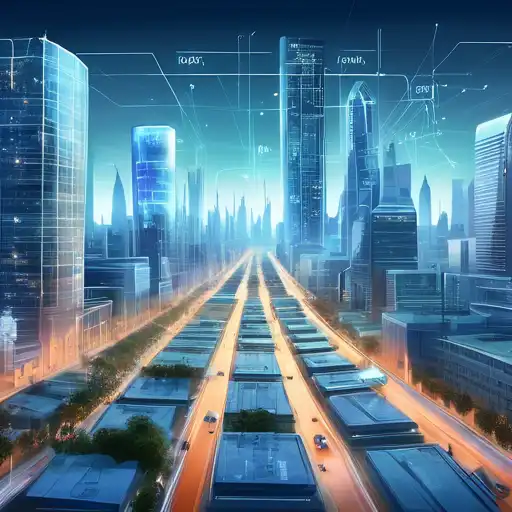Introduction to IoT and Smart Cities
The Internet of Things (IoT) is revolutionizing the way cities operate, making them smarter, more efficient, and more responsive to the needs of their inhabitants. By connecting devices, sensors, and infrastructure to the internet, cities can collect and analyze data to improve services, reduce costs, and enhance the quality of life for residents.
Key Areas Where IoT is Making an Impact
From traffic management to waste disposal, IoT is transforming urban areas in numerous ways. Below are some of the key areas where IoT is making a significant impact:
- Traffic and Transportation: IoT enables real-time traffic monitoring, reducing congestion and improving public transportation systems.
- Energy Efficiency: Smart grids and IoT devices help cities reduce energy consumption and lower carbon emissions.
- Public Safety: IoT technologies enhance security through smart surveillance and emergency response systems.
- Waste Management: Smart bins and IoT sensors optimize waste collection routes and schedules.
Benefits of IoT in Urban Development
The integration of IoT into city infrastructure offers numerous benefits, including:
- Improved efficiency and sustainability
- Enhanced public services and safety
- Reduced operational costs
- Increased citizen engagement and satisfaction
Challenges and Considerations
Despite its many advantages, the implementation of IoT in cities also presents challenges such as privacy concerns, cybersecurity risks, and the need for significant investment in infrastructure. Addressing these issues is crucial for the successful development of smart cities.
Future Prospects
The future of smart cities looks promising, with advancements in IoT technology paving the way for more innovative solutions. As cities continue to grow, IoT will play a pivotal role in ensuring they remain livable, sustainable, and efficient.
For more insights into how technology is shaping urban environments, check out our articles on urban development and sustainable cities.
Conclusion
IoT is at the heart of the smart city revolution, offering solutions to some of the most pressing urban challenges. By leveraging this technology, cities can become more connected, efficient, and responsive to the needs of their citizens. The journey towards smarter cities is just beginning, and IoT will undoubtedly continue to be a key driver of this transformation.
